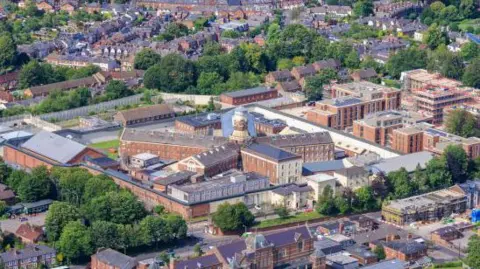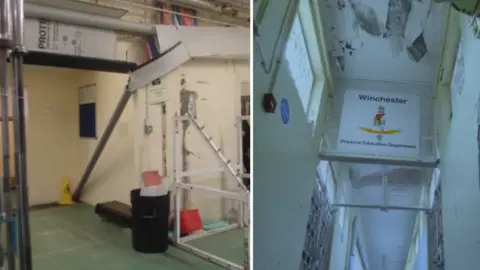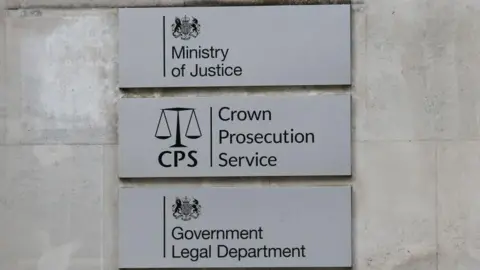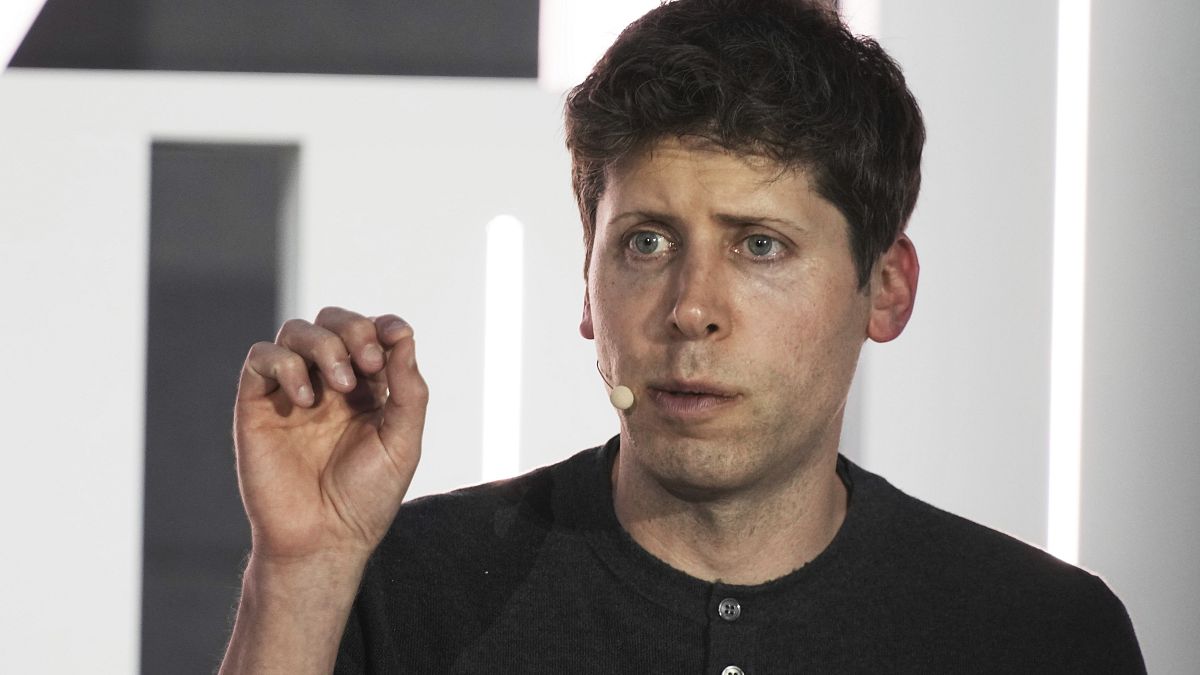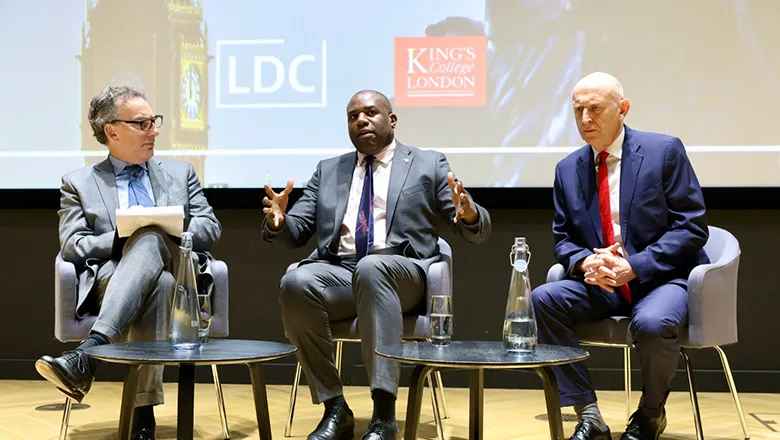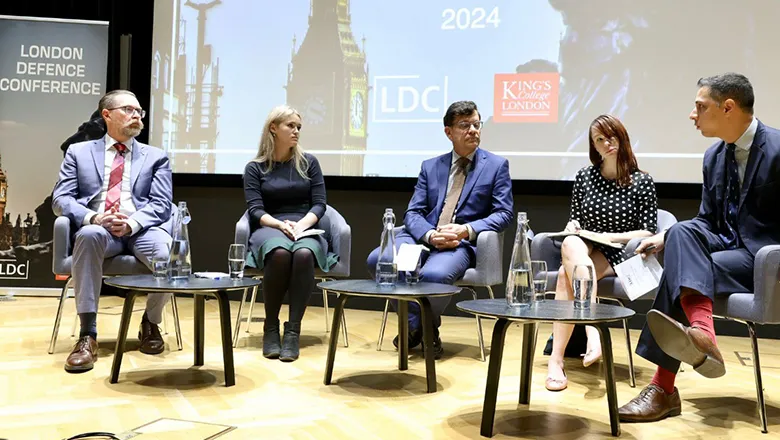Wednesday 22 May 2024
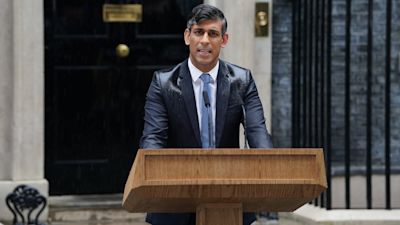
Prime Minister Rishi Sunak has been accused of excluding the deaf community by not having a sign language interpreter with him when he called the General Election.
According to the hearing charity RNID, Downing Street pledged to have British Sign Language (BSL) interpreters on hand for big announcements from spring 2024.
However, there was no interpreter in sight when Mr Sunak made his announcement outside Number 10 on Wednesday afternoon.
The charity wrote on X, formerly Twitter: “Where’s the British Sign Language (BSL) interpreter @10DowningStreet?
“Calling a General Election is one of the biggest moves our country can make – deaf people deserve to have that information at the same time as everyone else. This is not good enough!
“Let this be the last time British Sign Language (BSL) users are left behind – we call on all candidates to make this the most accessible General Election ever.”
As part of the Government’s disability action plan, officials said they would “make government publications and communications more accessible”.
This includes a pledge that “Number 10 Downing Street will work to provide in-situ BSL interpretation for all major press conferences and briefings from spring 2024 onwards.”
Rishi Sunak announces a snap summer general election
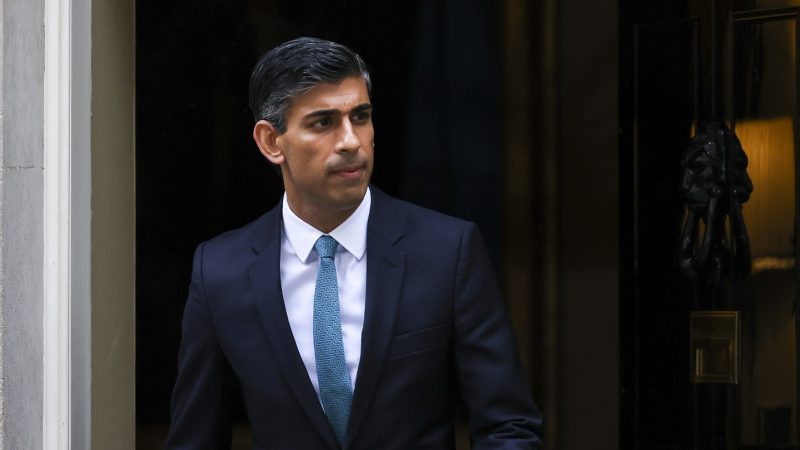
The Prime Minister has announced that a general election will be held on July 4, after making a surprise statement outside Downing Street this afternoon.
It follows fevered speculation after Rishi Sunak said that the election would take place in the second half of this year during Prime Minister’s Questions today. Foreign Secretary Lord Cameron was then forced to cut short his trip to Albania to “attend a meeting in London”, while Defence Secretary Grant Shapps had to delay an overseas trip to attend cabinet.
Political commentators were poised over the rumours of a general election as Home Office ministers were told to clear their diaries, while Rishi Sunak has faced fierce pressure from the opposition to announce a date.
He has now called a snap summer general election as he said the king has granted the dissolution of Parliament, which will be dissolved in Thursday 30 May ahead of what will be an intense six-week general election campaign period.
During his speech outside 10 Downing Street, Sunak talked about the government’s achievements, as he said a growing economy was “proof” that his “plan was working” and asked “who do you trust to lead our country?”
He said there were uncertain times ahead and insisted that he and his government have a clear plan to “take bold action” for the country “to flourish”.
It comes as Rishi Sunak is trailing behind Keir Starmer in the polls, with Labour about 20 points ahead of the Conservatives. But Sunak may be hoping that the rare glimpse of economic good news with the fall in inflation announced today could help his election campaign.
A Tory rebel source also told the BBC that some letters of no confidence in Rishi Sunak were being submitted, after a senior Tory MP said the atmosphere in the tea room was “panic”, ahead of the rumours of an imminent general election.
Commentators have also noted that the July 4th summer election will fall during Wimbledon and the Euros.
(Image credit: Rory Arnold / Number 10 – Creative Commons)
British Prime Minister Sunak sets July 4 election date as his Conservatives face likely defeat
LONDON (AP) — British Prime Minister Rishi Sunak on Wednesday set July 4 as the date for a national election that will determine who governs the U.K., as his divided and demoralized Conservative Party looks likely to lose power after 14 years.

Jill Lawless And Brian Melley, The Associated Press
LONDON (AP)
“Now is the moment for Britain to choose its future,” Sunak said in an announcement that took many people who expected a fall election by surprise. He chose a good day of economic news, hoping to remind wavering voters of one relative success of his time in office.
But Sunak was drenched by heavy rain outside the prime minister's residence, and his announcement was nearly drowned out by protesters blasting “Things Can Only Get Better,” a rival Labour campaign song from the Tony Blair era.
Sunak’s center-right party has seen its support dwindle steadily. It has struggled to overcome a series of crises including an economic slump, ethics scandals and a revolving door of leaders in the past two years.
The center-left Labour Party is strongly favored to defeat Sunak’s party. Labour leader Keir Starmer said his party would bring stability.
“Together we can stop the chaos, we can turn the page, we can start to rebuild Britain and change our country,” Starmer said.
Bookies and pollsters rank Sunak as a long shot to stay in power. But he said he would “fight for every vote.”
Sunak stressed his credentials as the leader who saved millions of jobs with support payments during the COVID-19 pandemic and got the economy under control. He said the election would be about “how and who you trust to turn that foundation into a secure future.”
The election will be held against the backdrop of a cost-of-living crisis and deep divisions over how to deal with migrants and asylum seekers making risky English Channel crossings from Europe.
The announcement came the same day official figures showed inflation in the U.K. had fallen sharply to 2.3%, its lowest level in nearly three years on the back of big declines in domestic bills.
The drop in April marks the greatest progress to date on five pledges Sunak made in January 2023, including halving inflation, which had climbed to above 11% at the end of 2022. Sunak hailed the new figure as evidence his plan was working.
“Today marks a major moment for the economy, with inflation back to normal,” Sunak said Wednesday ahead of the election announcement. “Brighter days are ahead, but only if we stick to the plan to improve economic security and opportunity for everyone.”
Voters across the United Kingdom will choose all 650 members of the House of Commons for a term of up to five years. The party that commands a majority in the Commons, either alone or in coalition, will form the next government and its leader will be prime minister.
Starmer, a former chief prosecutor for England and Wales, is the current favorite. The party’s momentum has built since it dealt the Conservatives heavy losses in local elections earlier this month.
The Conservatives have also lost a series of special elections for seats in Parliament this year, and two of its lawmakers recently defected to Labour.
Following on his party’s successes in the local elections, Starmer, 61, last week announced a platform focused on economic stability after years of soaring inflation as he tries to win over disillusioned voters.
He also pledged to improve border security, recruit more teachers and police and reduce lengthy waiting lists at hospitals and doctors′ clinics across the country.
Elections in the U.K. have to be held no more than five years apart, but the prime minister can choose the timing within that period. Sunak, 44, had until December to call an election. The last one was in December 2019.
Many political analysts had anticipated that a fall election would give Conservatives a better chance of maintaining power. That’s because economic conditions may improve further, voters could feel the effect of recent tax cuts, interest rates may come down and a controversial plan to deport some asylum-seekers to Rwanda — a key policy for Sunak — could take flight.
Tim Bale, professor of politics at Queen Mary University of London, said some voters might give Sunak credit for gambling on an early election because it makes him look strong and bold rather than weak and indecisive. But he said voters care about the fundamentals.
“And those fundamentals don’t look particularly good for the prime minister,” Bale said. “The economy, whatever he says, is still fairly weak. Growth is fairly anemic. Inflation has come down, but it’s still there ... (and) public services are in trouble.”
Sunak had been noncommittal about the election date, repeatedly saying — as late as lunchtime on Wednesday — that he expected it would be in the second half of the year.
Although inflation has fallen, Sunak’s other promises — to grow the economy, reduce debt, cut waiting lists to see a doctor at the state-run National Health Service and stop the influx of migrants crossing the English Channel — have seen less success.
He has struggled after entering office following the disastrous tenure of Liz Truss, who lasted only 49 days after her economic policies rocked financial markets. Truss had been chosen by party members after Boris Johnson was ousted over a series of ethics scandals.
___
Associated Press writer Danica Kirka contributed to this story.
Jill Lawless And Brian Melley, The Associated Press
By James Walker@James_L_Walker
THE First Minister has accused Downing Street of showing “contempt” for the Scottish people over the choice of date for the next General Election.
Rishi Sunak announced the snap election will be held on July 4, which will be in the first week of the school summer holidays in Scotland.
Speaking after Sunak's announcement, John Swinney set his sights firmly on the Prime Minister’s party rather than Labour, despite polls suggesting they are the SNP’s closest rival in Scotland.
Posting on Twitter/X, Swinney said: “I look forward to leading @theSNP in this election.
“This is the moment to remove the Tory Govt and put Scotland First by voting SNP.
“People in Scotland know we stand up for them and protect them from the damage done by Westminster.”
Speaking to journalists at Holyrood on Wednesday, the First Minister added that the party was in a “really good state” to fight the election because it has “strong, popular leadership”, adding that “Scotland is protected by the SNP”.
He also accused Downing Street of “contempt” for the Scottish people, with SNP Westminster leader Stephen Flynn also hitting out at the timing – saying it is "deeply concerning that Scotland’s school holidays have been an afterthought to Westminster".
The Scottish Greens – who until last month were the SNP’s Government partners – said they are prepared to stand a record number of candidates in the election.
“Scottish Greens are ready to go, we will be standing more candidates than ever before on July 4. With Scottish Greens in the room, people can be sure climate justice and social justice will always be on the table,” said co-leader Lorna Slater.
“A strong Scottish Green vote in this election could be transformational, so everybody needs to get out and vote for people and for planet.
“This is the last chance to save our nature and climate from the Tories, to put an end to their planet-wrecking policies, and to protect future generations from the harm being inflicted upon them.”
Alba Party leader and former first minister Alex Salmond urged voters to use the General Election to seek independence.
He said: “The 4th of July is celebrated in the USA as their Independence Day, but if we make the General Election about independence then in Scotland it may no longer be known as an American holiday, but as the day Scotland declared to the world that we will not accept a Westminster veto over our right to self-determination and that we have voted for Scotland to be an independent country.
“Alba Party are now the natural home for independence supporters. If we work hard then Alba can make a big impact for independence in the coming election.”
By David Bol
Published 22nd May 2024,
The snap general election is set to be a dream come true for Labour in Scotland – but could spell disaster for the SNP hoping for time to steady the ship.
John Swinney has branded Rishi Sunak calling a snap general election during the Scottish summer holidays as “the latest act of disrespect” from Westminster.
Mr Swinney has welcomed the poll being held on July 4, but admitted it was happening “sooner than we thought”.
The poll will coincide with school summer holidays in Scotland but not in England, with many families likely to have already booked vacations.
 John Swinney has criticised the general election taking place during the Scottish school summer holidays (Photo by Jeff J Mitchell/Getty Images)
John Swinney has criticised the general election taking place during the Scottish school summer holidays (Photo by Jeff J Mitchell/Getty Images)Speaking to the BBC, Mr Swinney described the move as “the latest act of disrespect from a Conservative government to call an election during the Scottish summer school holidays”. Expect more of that narrative in the coming weeks.

Read MoreWhy Rishi Sunak called a July general election and what it means for Scotland an...
He claimed the timetable will have “not have been given a moment’s thought” by the Conservatives and was another example of the “contempt the Tories have for Scotland”.
Despite the timetable, Mr Swinney said: “I very much look forward to leading the SNP in this election campaign.

“This is the moment to remove the Tory government and put Scotland first by voting SNP. We will work night and day to protect them from the damage done by Westminster.”
He claimed that “the SNP offers a better future to the broken Westminster consensus”.
The SNP leader added: “In this election we’ll be making the case why decisions about Scotland should be made here – and I’ll take that message to every part of Scotland.
“A vote for the SNP is a vote to put Scotland first – and for Scotland to become an independent country.”

The timing is a huge blow for the SNP. The party is lagging behind Labour in the polls and was hoping for a few months of stable government from Mr Swinney to steady the ship and close the gap. That has been ruled out.
Now, Mr Swinney has just six weeks to turn the SNP’s fortunes around.
There are also concerns over how prepared, financially, the SNP is to fight a general election. Accounts published in August 2023 showed that the SNP made a loss of more than £800,000 in the previous year.
For Labour, particularly in Scotland, a snap election is a dream come true. Anas Sarwar’s party has been chomping at the bit for months for a general election as they look to significantly boost their two Scottish MPs and help build a Labour government at Westminster.

Mr Sarwar has insisted that “the people of Scotland and the UK are desperate for an election and desperate for change”.
He added: “After 14 years of Tory chaos and failure, this is an opportunity that we cannot afford to miss.
“Scotland is crying out for change and that change is only possible with a Labour government led by Keir Starmer that is on the side of working people.
“Voting Scottish Labour means booting out this rotten Tory government, maximising Scotland’s influence with Scottish Labour MPs in government and delivering the change that Scotland needs. It’s time for change and Labour is ready to deliver it.”
For the Scottish Tories, the election could be dismal - with the party plummeting in the polls.
One Tory MSP said that it was a "disaster to hold it over the summer", but stressed "it was becoming obvious there is no good time for us to have this election".
Scottish Conservative leader Douglas Ross stressed his party was “ready to take the fight to the SNP and beat the nationalists in crucial seats up and down Scotland”.
He added that the general election in Scotland was “a huge opportunity to defeat the SNP and put an end to their obsession with independence for good”.
But Mr Ross, who is standing down as an MP at the election, has suggested tactical voting may be required to oust the SNP from seats the Tories are targeting and hoping to hold on to.
He said: “If voters unite in the many seats where it’s a straight fight between the Scottish Conservatives and the SNP, we can get rid of nationalist MPs who have never focused on the things that really matter.
“In key seats up and down Scotland, only the Scottish Conservatives can beat the SNP and get all of the attention on to voters’ top priorities, such as creating good jobs, reducing NHS waiting lists and investing in schools.”
The Scottish Greens have no prospect of winning any Westminster seats, but their vote share could prove vital in taking away support from the SNP in marginal seats - helping Labour to make gains, particularly across the central belt.
Scottish Greens co-leader, Lorna Slater, boasted that her party is “ready to go”, adding “we will be standing more candidates than ever before on July 4”.
Ms Slater has stressed that voting for the Greens shows support for “climate justice and social justice”.
She added: “A strong Scottish Green vote in this election could be transformational, so everybody needs to get out and vote for people and for planet.
“This is the last chance to save our nature and climate from the Tories, to put an end to their planet wrecking policies, and to protect future generations from the harm being inflicted upon them.”
The LibDems are expecting to make gains south of the Border as support for the Conservatives falls, but their ambitions in Scotland remain less clear.
Scottish Lib Dems leader Alex Cole-Hamilton has stated “it is absolutely within our grasp to have more liberals than nationalists” in the next Westminster parliament from Scotland.
Alex Salmond’s Alba party face the likelihood, if not the inevitability, of losing their two MPs who defected from the SNP – leaving questions over whether the party has an electoral future at all.
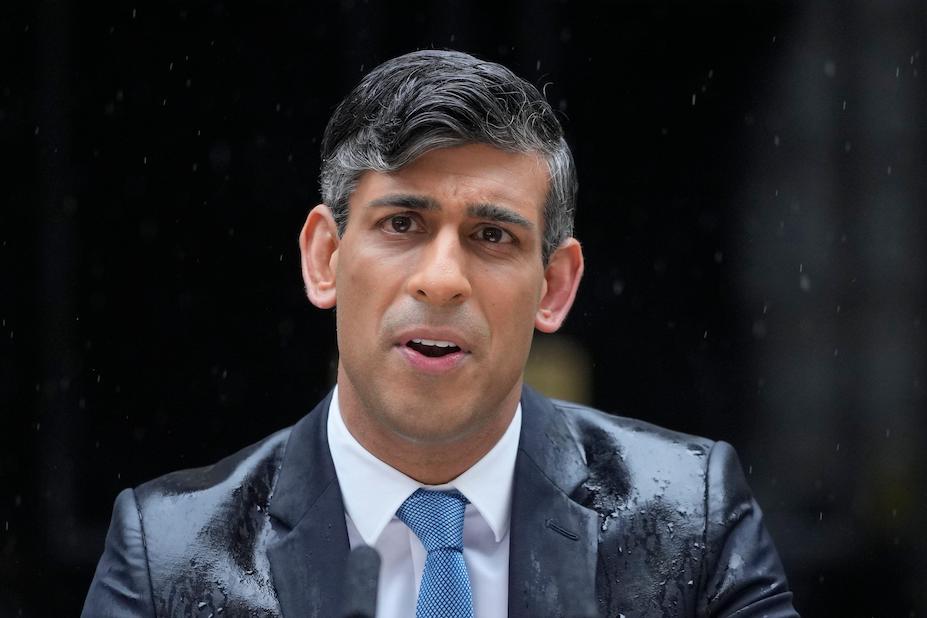
Election 2024: cornered and with nowhere to turn, Rishi Sunak rolls the dice
By Josh Self
Editor
Wednesday, 22 May, 2024
And so it has come to pass. After a day of feverish speculation in Westminster, a soaking wet Rishi Sunak — drowned out by Tony Blair’s 1997 election theme tune — has confirmed that Britain will head to the polls on July 4th.
How does one explain this surprise development, given Westminster had collectively come to expect an election in the autumn or winter later this year? Well first, Sunak’s strategists will have resolved that this “shock” development works to their man’s advantage. The prime minister has never quite managed to grip the agenda at Westminster — but all that changed in the most profound, politically seismic way this afternoon.
But Sunak’s rationale naturally runs deeper than any ephemeral shock factor — and it is twofold: (1), after some dire months politically, he will have felt compelled to stop the rot; and, (2), with the political tides refusing to turn, he had simply run out of tricks. Let’s take them in turn.
***Politics.co.uk is the UK’s leading digital-only political website, providing comprehensive coverage of UK politics. Subscribe to our daily newsletter here.***
It is no secret that Conservative decay had emerged as the prevailing narrative at Westminster. Politically crippling portents of a reckoning to come arrived weekly — and with escalating severity. Electoral routings, MP defections, sleaze scandals and stories of standing down Tories contoured the daily conversation at Westminster. It amounted to a slow, ostensibly inexorable, political disintegration.
As such, against this backdrop, Sunak had run out of meaningful responses.
Not so long ago, there was a time when the PM looked ahead to a series of set-piece events on the near horizon, lauding each as a chrysalis chamber from which he would emerge energised and election-ready. Count with me: Conservative Party conference, the King’s speech, a cabinet reshuffle and the autumn statement; all were framed in terms of how they might alter the destiny of a tired party tailspinning into opposition. In the end, the Spring Budget proved the last — and perhaps the purest — illustration of an underlying brutal reality: nothing was shifting the dial.
Before the PM’s announcement today, therefore, we had reached the point in the political cycle when every action by the government was judged according to its electoral potency. It followed that, with Rishi Sunak’s party languishing over 20 points behind Labour by most measures, individual actions were dismissed as too late and not enough. But the reading was no breezier for the prime minister when his recent relaunch attempts were taken together: persistent strategic failure exacts a heavy toll — soon people just stop listening.
Moreover, every sepulchral set piece, every by-election routing, each distressing development (opinion poll, recession, etc.) served to further fan the flames of cynicism in the Conservative Party at large. A pungent odour of defeat hovered over every government move; a malaise had set in — and the Conservative Party was slowly coming to terms with it.
In this way, with a general election expected sooner or later (sooner as it turns out) and the polls showing no sign of narrowing, Conservative MPs still declined to fall behind Sunak en masse; the conservative press refused to temper its antagonism; and privately — and at times very publicly — ambitious MPs postured for a leadership contest to come.
After the local elections, therefore, the question vexing Westminster was not whether Sunak‘s comeback could soon start, but rather: how low can the Conservatives go? The situation, with Sunak’s window for action shrinking by the week, was untenable. And so the dice gets rolled.
Don’t doubt it for a second: this is the biggest gamble of Rishi Sunak’s premiership.
Posterity will either declare it genius or political suicide.
Josh Self is Editor of Politics.co.uk, follow him on X/Twitter here.
Politics.co.uk is the UK’s leading digital-only political website, providing comprehensive coverage of UK politics. Subscribe to our free daily newsletter here.
